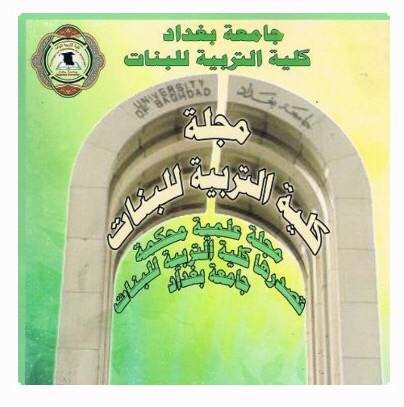The Cognitive Conception Anxiety of the University of Baghdad Students
Abstract
The rabid development in life and technology arouse the anxiety, stress, and fear of people. Accordingly the maladjustment and deceived conceptions appear in their behaviors which influence their selves and others.
These changes and development in society influence the university students' life, personality, thoughts and behavior. An exceeding in anxiety and fear has negative effect on everyday life activities and. negative effect on both mind and body.
The problem of the study is centered around cognitive conception anxiety of the university students.
The university students have their special importance in society and nation development, therefore many studies search in their personality and the effect of anxiety on them to find out the threats and challenges that face them and how guide them to overcome these challenges.
Accordingly, the study aims at finding out:
1. cognitive conception anxiety of university student
2. the statistically significant differences in cognitive conception anxiety of university students according to gender and specialty.
The study sample of (450) students is selected randomly as (225) male for scientific and humanistic studies and (225) female for scientific and humanistic studies.
The study tool have been constructed by the researcher, is the cognitive conception anxiety scale of (30) items. The validity and reliability of scale have been verified.
The results of the study show that:
1. The university students have cognitive conception anxiety.
2. There are statistically significant differences in cognitive conception anxiety according to gender factor in favor of female and there are statistically significant differences in cognitive conception anxiety according to specialty factor in favor of scientific studies and there are interaction between the variables.
According to the results several suggestions and recommendations are set forwards.

Downloads
Published
Issue
Section
License
![]()
All articles published in Journal of College of Education for Women are licensed under a Creative Commons Attribution 4.0 International License.










